- Home
- Terri Blackstock
Ulterior Motives Page 2
Ulterior Motives Read online
Page 2
It was a tangled web, this modern family with all its branches and extensions, and she would have moved heaven and earth to stop it from becoming this way. But that decision had been taken out of her hands. Marriage was sacred to her, and divorce had never been an option. But her husband had not held the same sentiments.
She heard a car pull into the driveway, and rushed to the kitchen to look out the window.
Sixteen-year-old Jenny, who wore her prettiness with uncertainty, got out of her little car and headed for the door. Though her blonde hair was recently brushed and her make-up was flawlessly applied—no doubt she’d touched it up in the bathroom during her study hall—Sharon could see by the look on Jenny’s face that something was wrong.
Sharon opened the door. “Hi, honey.”
“Hi.”
Sharon noted the despondence in Jenny’s voice—and remembered that her moods were sometimes sincere, sometimes practiced. One never knew if Jenny’s crises were really crises or just part of the daily drama that was the life of a teenager.
“Sorry I’m late,” she said. “I had a note on my windshield from a friend in trouble, and I had to go help.”
“That’s okay. I’m not late—yet.” Sharon rushed back into the den and grabbed her briefcase, then returned to the kitchen. Her daughter had not yet kicked off her shoes and gone to the refrigerator, her usual routine upon arriving home, which meant that something was on her mind. “Something wrong, honey?”
Jenny plopped into a chair, her long blonde hair falling into her face as she covered it dramatically with her hands. “Oh, Mom, it’s just awful! This friend of mine—someone I care a lot about—is in trouble, and I’ve been trying to help. I really need to get back there. I can take Christy with me. It’s just—I have to go. Mom, they’re in such a mess!”
These were real tears, Sharon noted with surprise. She set her briefcase down and stood next to Jenny, pulling her close. “Honey, tell me. Who needs you?”
The words burst out: “Mom, these friends of mine, they’re married and have these precious little kids, and yesterday he got fired from his job for no reason at all. And to make matters worse, they got evicted from their house and last night they spent the night in their car—their whole family. They didn’t have any money, so they ate food that people had thrown away behind a fast-food restaurant.”
“That’s awful,” Sharon said. “Who are they? Someone you know from church?”
“No. Not from church. They’re friends from Westhaven.”
Westhaven was an artsy area on the west side of St. Clair. It was the area where Ben lived—Sharon’s ex-husband and Jenny and Christy’s father. Since her children had an entire life in Westhaven on alternate weekends that she knew little about, the explanation didn’t surprise her.
“Mom, can you picture those little kids sleeping in the backseat of their car?” Jenny cried. “It’s not fair.”
Sharon’s own eyes began to well. “No, it’s not. Where are they now? Can you get in touch with them?”
Jenny sniffed and looked up at her. “Yes, I know where they are.”
“Then go get them and bring them back here. At least we can give them a place to sleep and some food until they get on their feet. We have plenty of room.”
Jenny hesitated, but her wet eyes were hopeful. “Mom, are you sure?”
“Of course. When I bought this house, I promised myself that I’d never turn away anyone in need. I would never deliberately let some poor family sleep out on the street when we have five bedrooms. Besides, it wouldn’t be the first time we’ve taken somebody in.”
“But you don’t even know who they are.”
“It doesn’t matter who they are. They’re welcome here.”
A tentative smile broke through Jenny’s tears.
“What are you waiting for?” Sharon asked, getting up and heading for the refrigerator to see if she needed to make a trip to the store before their guests arrived. “Go get them. My closing won’t take long. I’ll hurry home, change the sheets in the guest rooms, and cook something nice for supper. Don’t worry about Christy. I’ll take her with me.”
But Jenny kept sitting there, staring, as if she had something else to say but didn’t quite know how to say it. “Mom?”
Sharon checked the pantry, distracted. “Hmm?”
“There’s one more thing you should know.”
“All right,” Sharon said. “Shoot.”
“This family . . . it’s Dad and Anne and the kids.”
Sharon felt the blood draining from her face. Slowly, she turned to face her daughter. “Is this a joke, Jenny?”
Jenny didn’t look amused. Tears filled her eyes again, and she wiped her face as it reddened. “It’s no joke, Mom. Mr. Dubose fired Daddy yesterday, just out of the blue, and took all his credit cards that the gallery had given him. Daddy was living in the apartment provided by the gallery, and Mr. Dubose told him to get out last night. They had no place to go, and Mr. Dubose refused to give Daddy his last paycheck or the paintings he still had in the studio.”
“And your father didn’t have any savings? Any money in his wallet?”
Jenny closed her eyes. “Mom, you know Daddy’s never been good with money. He’s an artist, not a banker. The gallery took care of things for him so he could paint.”
“Well, what did he do to get fired?” Sharon spouted.
“Nothing!” Jenny shouted back. “He has no idea what happened.”
“Right,” Sharon bit out. “Just like he had no idea how Anne got pregnant while he was still married to me. Life is a big mystery to your father.”
“Mom!” Jenny cried.
Sharon leaned over the kitchen counter, angry at herself for breaking her cardinal rule not to put Ben down in front of his children. She let out a ragged sigh. “I’m sorry. I shouldn’t have said that.”
Jenny sank down into a chair. “Mom, you offered to let them stay here. You said it didn’t matter who it was.”
Sharon swung around. “That was before I knew it was them! You lied to me, Jenny! You set me up!”
“I did not lie!” Jenny cried. “I just didn’t tell you who they were! I knew you would refuse to help if you knew, and I wanted you to see how hypocritical that is!”
“Your father lost his job and his home, and now I’m a hypocrite? How do you figure that?”
“Because you’d help anyone else! The Golden Rule applies to everybody but Daddy, doesn’t it, Mom? ‘Doing unto the least of these’ is great—unless the least of these is Daddy.”
“Jenny, you can’t be serious! It’s crazy to think that I, of all people, would take him in, with that woman who destroyed my family, and those children that she loves to flaunt in my face!”
“Mom, I’ve seen you spend entire weekends working at shelters with winos and runaways. I’ve seen you go to prisons and teach Bible classes to inmates. If you’d do it for them, why not for my father?”
“One very good reason,” Sharon said coldly. “Because he brought every bit of this on himself. He’s irresponsible, and it’s catching up with him!”
“But Emily and Bobby are my sister and brother! They don’t deserve to eat out of a garbage dump or sleep in a car.”
“They’re your half-sister and brother. There’s a big difference.”
“They’re my sister and brother, Mom, whether you like it or not. And if they were in the same predicament and didn’t belong to Daddy, you’d be one of the first people I know to help them.” She tilted her head pleadingly. “Please, Mom. Won’t you let them stay here just for a few days? We have all this room—five bedrooms—and they have nothing!”
The thought of inviting the man who had cheated on her and betrayed her, not to mention the woman who had wrecked their marriage, to sleep in her home was repulsive. It had taken Sharon five years to lose the pain, to learn not to grieve each time the kids went to spend their alternate weekends with their father. When she saw Anne, Sharon no longer seethed with hatred for th
is woman who had seduced her husband, then delightfully announced that she was having his child. Yes, she had grown beyond the misery. But this . . .
“They cannot stay here,” Sharon said, setting her hands on her hips. “You can put a guilt trip on me for this if you want to, and blame me for everything, and convince yourself that this is all my fault, but I can’t take that man and that woman into my home. I can’t do it! It’s too much to ask.”
The crushing disappointment on Jenny’s face made Sharon feel about an inch tall, and she found herself getting angry about her daughter’s grief.
“Mom, what are they gonna do? This is my father, and my family, and I love them! Little Bobby’s getting sick, and there they are out in their car. And it’s cold—”
“Bobby’s sick? Whatsa matter with him?” Christy stood in the doorway holding a makeshift guitar made of a tissue box with rubber bands for strings and a paper towel roll for the neck. The whole thing glistened with transparent tape.
“Christy, I told you not to come down without me!”
Christy looked apologetic. “I wanted to surprise you with my guitar.” She strummed it, making a discordant sound, and danced a little. Ordinarily, Sharon and Jenny would both have laughed, but neither was able to at the moment.
Christy stopped dancing and looked up at her sister’s red, wet face. “What’s wrong, Jenny? What did you say about Bobby being sick?”
Jenny seized the moment to get her clout-carrying little sister involved. “He doesn’t have a place to live! Neither do Daddy or Anne or Emily,” she blurted. “And we have this huge house, but Mom won’t let them stay here.”
“Oh, for heaven’s sake . . .”
The little blonde girl came farther into the kitchen, her huge eyes full of distress. “Why can’t they stay here, Mommy?”
“Because!” Sharon glared at Jenny for dragging the child into this. “Jenny, you’re not playing fair.”
“Neither are you!” Jenny’s face was growing redder as the tears came faster, and though Sharon knew she was, indeed, being manipulated, she also knew that it wasn’t an act. Jenny was seriously tormented by her father’s plight. “Mom, how would you feel if your father were out on the street? I know you hate Daddy and Anne, but think about the kids. Christy and Emily are close, Mom, really close—and right now Emily hasn’t had a bath in two days, she hasn’t slept in a bed, she hasn’t eaten a full meal. Mom, she’s only five years old! She shouldn’t have to face this. And the baby just cries all the time. They need to take him to the doctor, but they don’t have any money! Mom, just forget how you feel about him, and do this for me. Please!”
Sharon looked from Jenny’s pleading eyes to those big blue eyes of her younger child, staring up at her with disbelief that she couldn’t help her father when he was so obviously in need. She grabbed her purse and yanked out her wallet. “I’ll give them some money for a hotel and food. That’s all I can do.”
“Really, Mom?” Jenny asked. “You’d do that? Because that would help. He’d probably even like it better.”
Sharon breathed a laugh. “I’ll bet he would.” She jerked the money out of her billfold and began to count it. When she looked up again, she saw the hurt looks on her daughters’ faces.
She took a deep breath, trying to calm down, hating herself for the feelings coursing through her. “No matter what you think, Jenny, I don’t hate your father. I never wanted to see him destitute. I’ll give him as much as I can.” She handed her the stack of bills. “I have $150. I just went to the bank today. Give it all to him.”
A smile broke through Jenny’s tears. “Thank you, Mom. This means so much.”
Sharon decided not to reply to that, so she leaned over and kissed Christy on the cheek. “Go get your shoes on. You and Jenny are going to take the money to Daddy while I go to my appointment.”
Christy hugged her fiercely. “Bye, Mommy.”
Deep love rose inside her for the small child she had raised virtually alone. “You be good, okay? And when you get back, no tree climbing. That tree is off-limits unless I’m home.”
“Okay. Can I take my guitar to show Daddy?”
“Of course. Maybe you can play it for him and cheer him up.”
She hugged Jenny and felt the extra squeeze her daughter gave her.
“We’ll see you tonight, Mom.”
“Yeah,” Sharon said. She got her briefcase and headed for her car.
CHAPTER THREE
Tony Danks stooped near the body. It had been found by a cleaning woman who had called the police, frightened out of her wits. Her 911 call had been almost incoherent. From the looks of things, the man had probably been dead since yesterday. Tony studied the change lying on the floor, as if it had fallen out of the victim’s pocket. Something didn’t ring true. Change didn’t just jump out of pockets like that. He pulled out his notepad and jotted down the possibility that this had been a robbery, even though his wallet looked undisturbed in his back pocket.
Squatting beside the body, he reached into the pockets himself and found only a pair of keys. Probably the keys to the gallery, he thought. He took them out and dropped them into an evidence bag in case they were needed later.
He looked up at the photographer. “Did you get a shot of this change lying here?”
“Yeah,” the cop said. “You can go ahead and tag it.”
With rubber-gloved hands, Tony began to pick up the bloody change and drop it into a bag of its own. He came to a gold money clip with the initials BLR. “Hey, Jack? What did you say the victim’s name is?” he asked the cop who’d been the first to arrive on the scene.
“Louis Dubose.”
“Hmm,” he said, and dropped the money clip into another bag. “The initials on this say BLR.”
“Maybe he’s our killer,” the photographer said. “Maybe it fell out of his pocket.”
Tony was skeptical. “If so, there were an awful lot of things falling out of pockets.”
He got another bag and pulled the hairs from the victim’s fingers. “On the other hand, there was probably a struggle before the killer shot him in the back. Who knows?” He carefully tagged the hairs. They would be sent to the lab today and would probably go far in helping them to identify the killer.
He stood up. “So what’s the story on that apartment at the back?”
Jack checked his notes. “According to the cleaning woman, some artist named Ben Robinson lived back there until yesterday. Looks like he moved out in a rush. Left all the furniture behind, but no clothes or personal items.”
“Ben Robinson,” Tony repeated. “BLR. I’d say he’s the first person we need to question.”
“If we can find him.”
“We’ll find him,” Tony assured him.
The front door opened and Larry Millsaps, Tony’s partner, came in brandishing a bag. “You’ll never guess what I found in the dumpster out behind the gallery.”
“What?” Tony asked.
“The murder weapon. A .22.”
“Did you run a check on it?”
“Yeah. It’s registered to a Ben Robinson. At this address.”
Tony looked back around the gallery, where other cops were videotaping, fingerprinting, photographing. “What do you bet that our Ben Robinson has long blonde hair?”
“Did you find some?”
“Yep. That and a money clip with his initials. Looks like he was in a hurry to leave, too. Didn’t stick around long enough to clean up.”
“I’d say it’s time to make an arrest,” Larry said.
“I’m right behind you,” Tony told him.
CHAPTER FOUR
Bobby was sound asleep when Ben Robinson checked his family into the inexpensive motel room, carrying the bags of food they had picked up at the nearby fast-food restaurant. Ben laid the six-month-old baby down on one of the double beds, covered him with the blanket he was wrapped in, and felt his head. “I think his fever has gone down,” he told Anne, who was ushering Christy and Emily in. “Th
e Tylenol helped.”
Jenny sat down next to him, careful not to disturb the sleeping baby. “The least Mr. Dubose could have done was give you his crib.”
Anne set the bag of two-liter drinks on the table. “He said all the furniture belonged to the gallery,” she said in a weary monotone.
“It did belong to the gallery,” Ben said, his tone reflecting hers.
“Yeah, well, we should have seen this coming,” Anne went on. “When you depend on other people, you wind up out in the street, sleeping in your car.”
“Mommy, can I eat now?” Emily asked.
“Sure, sweetheart.” Anne’s tone softened as she looked down at the five-year-old, a couple of inches shorter than Christy, and with shorter hair, although in color it was identical to Christy’s. It was obvious to anyone that they were sisters, even though they did have different mothers. She dug into the bag for Emily’s burger. “Christy, here’s one for you.”
Christy looked questioningly at Jenny.
“I told you we don’t need anything,” Jenny said. “Christy and I can eat at home. You need to save your money.”
“I could tell she was hungry,” Anne said with a half-smile. “Besides, it wouldn’t be fair for her to sit there and watch us eat and not have anything herself. Here, Chris. Your drink is in the box.”
Christy smiled and went to get it.
Jenny got up from the bed and went to her father, who stood leaning against the wall, his pale eyes distant and dismal. His usually clean blonde hair was oily because he hadn’t had the chance to shower since yesterday, and he had it pulled back in a pony tail, a look that her mother found disgusting, but all her friends considered cool. He was unshaven, and she noticed the tired lines under his eyes. Without those lines, he could have passed for her older brother, rather than her forty-year-old father.
She slid her arms around him from behind and laid her head against his back. At six feet, he was almost a head taller than she. “Daddy, are you okay?”
He pretended to snap out of it, and smiled. “Yeah. I was just thinking. Somehow I’ve got to get all my paintings out of the gallery. They’re my livelihood. If I could sell them, or at least take them to another gallery . . .”

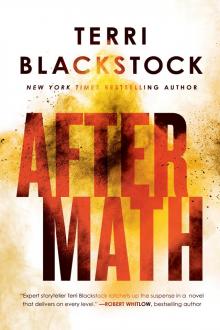 Aftermath
Aftermath Shadow of Doubt
Shadow of Doubt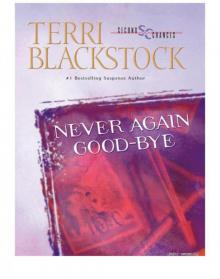 Second Chance - 05 - Never Again Good-Bye
Second Chance - 05 - Never Again Good-Bye Miracles
Miracles Broken Wings
Broken Wings the Cape Refuge (Cape Refuge Series Book 1)
the Cape Refuge (Cape Refuge Series Book 1) Shadow in Serenity
Shadow in Serenity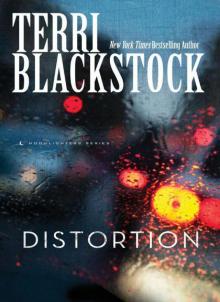 Distortion (Moonlighters Series)
Distortion (Moonlighters Series)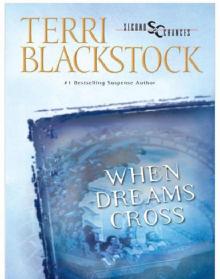 Second Chance - 02 - When Dreams Cross
Second Chance - 02 - When Dreams Cross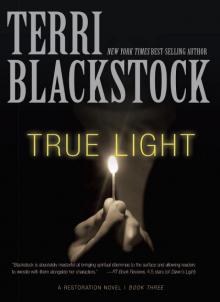 True Light
True Light Private Justice
Private Justice Last Light
Last Light Downfall (An Intervention Novel)
Downfall (An Intervention Novel)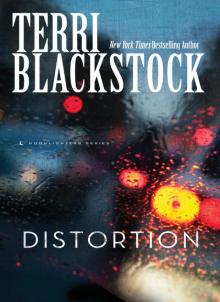 Distortion: Moonlighters Series: Book Two
Distortion: Moonlighters Series: Book Two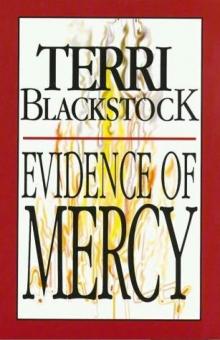 Evidence of Mercy
Evidence of Mercy If I Run
If I Run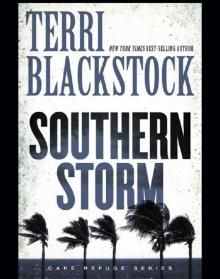 Southern Storm
Southern Storm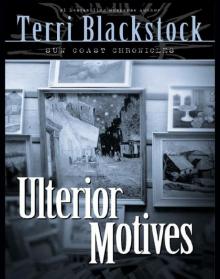 Ulterior Motives
Ulterior Motives Emerald Windows
Emerald Windows River's Edge
River's Edge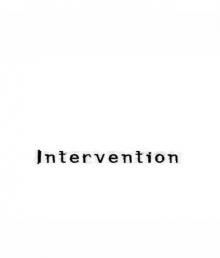 Intervention
Intervention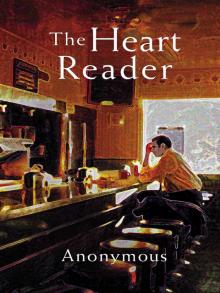 The Heart Reader
The Heart Reader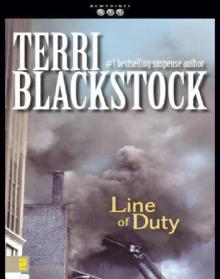 Line of Duty
Line of Duty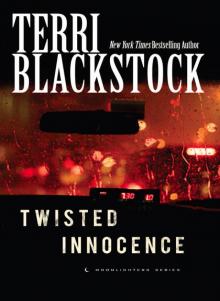 Twisted Innocence
Twisted Innocence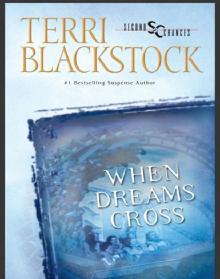 When Dreams Cross
When Dreams Cross Downfall
Downfall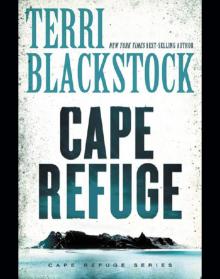 Cape Refuge
Cape Refuge Breaker's Reef
Breaker's Reef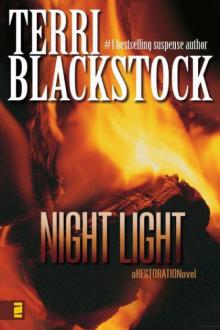 Night Light
Night Light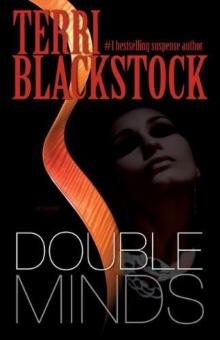 Double Minds
Double Minds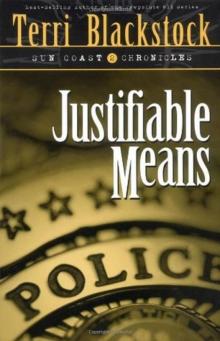 Justifiable Means
Justifiable Means Covenant Child
Covenant Child If I Live
If I Live If I'm Found
If I'm Found Vicious Cycle
Vicious Cycle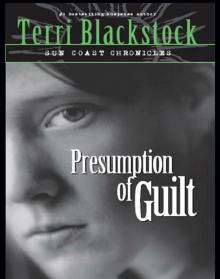 Presumption of Guilt
Presumption of Guilt Trial by Fire
Trial by Fire Word of Honor
Word of Honor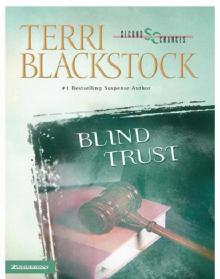 Second Chance - 03 - Blind Trust
Second Chance - 03 - Blind Trust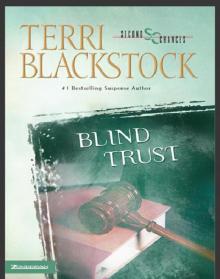 Blind Trust
Blind Trust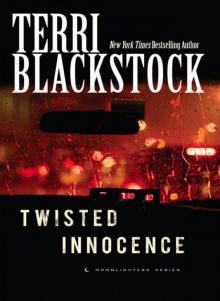 Twisted Innocence (Moonlighters Series Book 3)
Twisted Innocence (Moonlighters Series Book 3)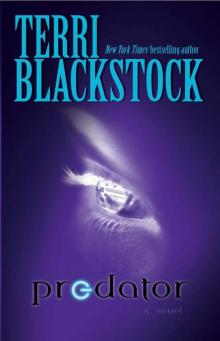 Predator
Predator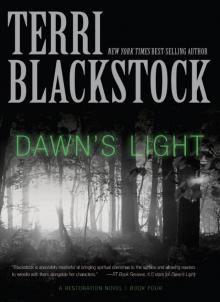 Dawn's Light
Dawn's Light Chance of Loving You
Chance of Loving You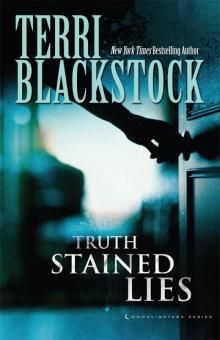 Truth-Stained Lies
Truth-Stained Lies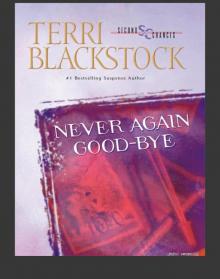 Never Again Good-Bye
Never Again Good-Bye Catching Christmas
Catching Christmas